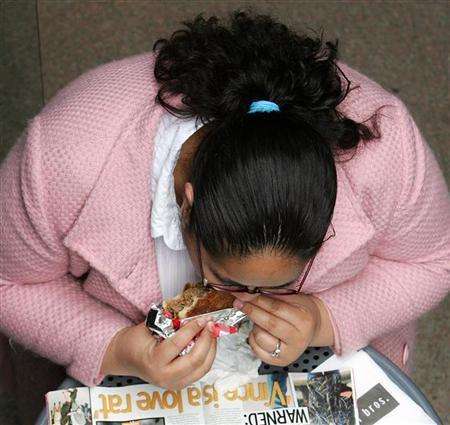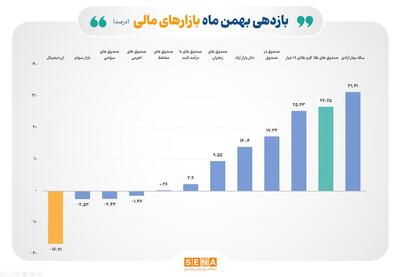دوشنبه, ۶ اسفند, ۱۴۰۳ / 24 February, 2025
کارگاه ترجمه آلمانی(6): یک نسل عمل گرا زیر فشار

در زیر گفتگویی را با کلاوس هرلمن، استاد علوم اجتماعی دانشگاه بیله فلد، که یکی از مهم ترین متخصصان موضوع جامعه شناسی جوانان در آلمان به حساب می آید، را ابتدا به آلمانی و سپس به انگلیسی می خوانیم که برای ترجمه آزمایشی می تواند مورد استفاده قرار بگیرد.
„Eine pragmatische Generation unter Druck“
Klaus Hurrelmann, Professor für Sozialwissenschaften an der Universität Bielefeld, ist einer der renommiertesten Jugendforscher in Deutschland. Er leitet das wissenschaftliche Team der Shell-Jugendstudie, die alle vier Jahre die Lebenssituation der 12- bis 25-Jährigen in Deutschland beleuchtet. Ein Gespräch über die Jugend 2006, die auf wachsende ökonomische Unsicherheit nicht mit Rebellion, sondern mit Anpassung und Rückzug in die Familie reagiert.
Herr Hurrelmann, wären Sie heute gerne noch einmal jung?
Das würde ich mir gut überlegen.
Warum?
Wer jung ist, hat die ganze Lebensperspektive noch vor sich. Das ist reizvoll. Aber Jungsein heißt auch, eine große Verantwortung für sich selbst zu haben. Wir leben in einer offenen Gesellschaft mit vielen unübersichtlichen Angeboten. Die Wahlmöglichkeiten sind schön, wenn man mit ihnen souverän umgehen kann. Für diejenigen, die daran scheitern, ist Jungsein sehr, sehr anstrengend und belastend.
69 Prozent der deutschen Jugendlichen haben Angst, ihren Arbeitsplatz zu verlieren beziehungsweise keine adäquate Beschäftigung zu finden, berichtet die neue Shell Jugendstudie. Die Jugend ist viel pessimistischer als noch vor vier Jahren bei Ihrer letzten Studie.
Das liegt daran, dass sich die Lage am Lehrstellen- und Arbeitsmarkt weiter verschlechtert hat. Für die Ängste gibt es also ökonomische Gründe, die gar nicht zu leugnen sind. Viele ahnen, dass sie unter verschärften Bedingungen ihren Weg finden müssen. Dabei ist Bildung ein Schlüsselfaktor. 57 Prozent der Gymnasiasten, aber nur 38 Prozent der Hauptschüler blicken eher zuversichtlich in die Zukunft.
Welche Konsequenzen ziehen die Jugendlichen aus der wachsenden Zukunfts-Unsicherheit?
Gebildete Jugendliche nehmen meist eine pragmatische Haltung ein. Leistung, Sicherheit und Macht sind ihnen wichtig. Die Werte Fleiß und Ehrgeiz gewinnen an Bedeutung. Die Jugendlichen wollen nicht die Gesellschaft verändern, sondern konkrete Probleme in Angriff nehmen, die mit persönlichen Chancen verbunden sind. Leider gibt es auch eine Gruppe, die sich aufgibt und nicht mehr in die Zukunft investiert. Es sind überwiegend junge Männer ohne Schulabschluss, die das Gefühl haben, keinen Platz in der Gesellschaft zu bekommen.
In der Shell Jugendstudie bezeichnen Sie die Jugend 2006 als „pragmatische Generation unter Druck“. Wie gehen Jugendliche mit dem Druck um?
Schätzungsweise zehn bis 15 Prozent der Jugendlichen sind schwer belastet. Der Druck sucht sich ein Ventil. Wer es nicht schafft, die Herausforderungen zu bewältigen, wird unter Umständen psychisch krank, greift zu Drogen oder wird gewalttätig. Im Osten Deutschlands äußern sich 57 Prozent der Jugendlichen unzufrieden mit dem Funktionieren der Demokratie. Das ist ein Warnsignal. Aufgabe der Politik muss sein, der jungen Generation glaubwürdig entgegen zu treten und Räume zu schaffen, wo sie ihre Wünsche und Bedürfnisse artikulieren kann.
In Frankreich kam es Ende 2005 zu schweren Ausschreitungen benachteiligter Jugendlicher in den Vorstädten. Nacht für Nacht wurden Autos in Brand gesetzt. Ist Ähnliches in Deutschland zu erwarten?
Ganz so dramatisch ist die Lage noch nicht. Bei uns sind junge Migranten, von denen die Proteste in Frankreich überwiegend ausgingen, nicht ganz so stark benachteiligt, was Wohnungen und Arbeitsplätze angeht. Auch in der allgemeinen Jugendarbeitslosigkeit-Statistik liegt Deutschland im europäischen Vergleich noch im besseren Drittel. Dies erklärt, warum hier nicht Hunderttausende Schüler und Studenten auf die Straße gehen und gegen Arbeitsmarktreformen demonstrieren, wie es in Frankreich im März 2006 zu beobachten war.
Oder gibt es hier zu Lande einfach keine jungen Rebellen mehr? Sie haben die deutschen Jugendlichen einmal als „bequeme Demokraten“ bezeichnet.
Die deutschen Jugendlichen halten sich fern von Parlamenten und Parteien. Sie befürworten zwar demokratische Strukturen, wollen aber nicht in ihnen mitmachen. Durch unser in die Länge gestrecktes Ausbildungssystem haben wir in Deutschland eine besondere Form der Pazifizierung jugendlicher Aufbruchstimmungen. Wir könnten aber eine Rebellion sehr gut gebrauchen in dem Sinn, dass von den Jungen Unruhe ausgeht, Ungeduld. Sie müssen sich im öffentlichen Raum mehr Gehör verschaffen und die Lösung von Problemen – zum Beispiel auf dem Arbeitsmarkt – einfordern.
Warum bleibt Ihrer Meinung nach dieses Aufbegehren aus?
Das hat auch damit zu tun, dass der Spielraum, sich gegenüber der Elterngeneration abzusetzen, kleiner geworden ist. 90 Prozent der Jugendlichen verstehen sich gut mit ihren Eltern. Im Alter von 18 bis 21 Jahren leben drei Viertel noch zu Hause. 71 Prozent würden ihre Kinder genauso erziehen, wie ihre Eltern es getan haben. In ökonomisch unsicheren Zeiten gibt die Familie Sicherheit, sozialen Rückhalt und emotionale Unterstützung. Das ist zunächst einmal eine positive Leistung. Allerdings wird es kritisch, wenn es sich junge Menschen zu lange im „Hotel Mama“ bequem machen und die notwendige Ablösung vom Elternhaus blockiert wird.
In Deutschland haben 20 Prozent der Jugendlichen einen Migrationshintergrund. Wie sieht ihr Verhältnis zu den "deutschen" Jugendlichen aus? Gibt es Spannungen zwischen Jugendlichen, die aus unterschiedlichen Kulturkreisen stammen, oder ist die Herkunft für die junge Generation kein Thema?
Die junge einheimische Bevölkerung hat sehr viel weniger Vorurteile gegenüber Migranten als die ältere - aber einige doch. So ist zum Beispiel gegenüber der letzten Shell Studie 2002 der Anteil derer, die sich gegen weitere Migrationen nach Deutschland aussprechen, spürbar angestiegen. Der Grund liegt eindeutig in der verschlechterten Ausbildungs- und Berufsperspektive. Damit ist auch klar, wo die politische Herausforderung liegt!
Politiker aller Parteien haben angesichts der drohenden Überalterung der Bevölkerung die Familie als großes Thema entdeckt. Wird diese Familien verbundene junge Generation wieder mehr Kinder in die Welt setzen?
Genau das Gegenteil ist der Fall! Zwar sind 72 Prozent der Überzeugung, dass man eine Familie braucht, um wirklich glücklich zu leben. Doch wirtschaftliche Zwänge und Zukunftsangst halten viele vom Schritt zur Gründung einer eigenen Familie ab. Dabei spielt auch eine Rolle, dass Mädchen die Jungen in Sachen Bildung überholt haben. Die meisten jungen Frauen wünschen sich zwar Kinder, doch ihnen ist bewusst, dass Familie und beruflicher Erfolg schwer zu vereinbaren sind. Außerdem fehlt meist ein zur Arbeitsteilung bereiter Partner. Um die Jugend auf die Herausforderungen der Zukunft vorzubereiten, ist deshalb auch eine gezielte Jungenförderung notwendig, die ein flexibleres Bild des Mannes vermittelt.
Shell Jugendstudie 2006
Ganz gleich ob Forscher, Werbeindustrie oder interessierte Bürger – wer Näheres über die junge Generation in Deutschland erfahren will, kommt um die Shell Jugendstudie nicht herum. Bereits seit 1953 beauftragt der Mineralölkonzern alle vier Jahre unabhängige Wissenschaftler, die Lebenswelten und Einstellungen junger Menschen in Deutschland zu untersuchen. Das Forscherteam um den Sozialwissenschaftler Professor Klaus Hurrelmann befragte dazu Anfang 2006 mehr als 2.500 Jugendliche im Alter von 12 bis 25 Jahren.
Die Jugend 2006 blickt nicht mehr so optimistisch in die Zukunft wie die Jugend 2002: 69 Prozent haben Angst vor Arbeitslosigkeit, vier Jahre zuvor waren es nur 55 Prozent. In als unsicher empfundenen Zeiten gewinnt die Familie an Bedeutung. Das Vertrauen in Politiker und die Bundesregierung bleibt weiterhin gering. Immerhin interessieren sich wieder 39 Prozent für Politik, 2002 waren es nur 34 Prozent – so wenig wie nie zuvor.
Einen Schwerpunkt der aktuellen Untersuchung bildet das Thema „Jugend in einer alternden Gesellschaft“. Dabei äußern die Jugendlichen großen Respekt vor den Leistungen der älteren Generation. “Man sieht eine Generation, die alle Erwartungen der Gesellschaft nach Verantwortung, Leistungsbereitschaft und Familiensinn erfüllt“, analysieren die Autoren der Studie. „Die vorgetragenen Wünsche nach besseren gesellschaftlichen Rahmenbedingungen für Bildung, für Ausbildungs- und Jobchancen sowie für Familiengründung erscheinen in Relation dazu sehr moderat.“
Erstmals wurde auch die Einstellung junger Menschen zu Religion und Kirche genauer beleuchtet. Nur 30 Prozent glauben demnach an einen persönlichen Gott. Während in den neuen Ländern kaum Jugendliche einen Bezug zu Religion und Kirche haben, sind westdeutsche Jugendliche meist konfessionell gebunden. Sie basteln sich allerdings häufig aus religiösen und pseudo-religiösen Versatzstücken eine eigene „Religion light“ zusammen. Anders sieht es in der Gruppe der jugendlichen Migranten aus. Hier ist noch weitaus mehr „echte Religiösität“ zu finden – so glauben 52 Prozent an einen persönlichen Gott.
Hinsichtlich des weiteren Zuzugs von Migranten nach Deutschland dominiert bei der Mehrheit der Jugendlichen inzwischen eine ablehnende Haltung. 58 Prozent der Jugendlichen sprechen sich im Vergleich zu 46 Prozent im Jahr 2002 dafür aus, in Zukunft möglichst weniger Zuwanderer als bisher in Deutschland aufzunehmen. Diese reserviertere Position hat inzwischen alle Schichten erreicht. Mit 63 Prozent geben inzwischen zwei Drittel der ausländischen Staatsbürger im Vergleich zu 58 Prozent im Jahr 2002 an, „ab und an“ im Alltag wegen ihrer Nationalität diskriminiert zu werden.
Christina Sticht
arbeitet als Redakteurin und freie Journalistin in Hamburg und Hannover.
Copyright: Goethe-Institut, Online-Redaktion
Haben Sie noch Fragen zu diesem Artikel? Schreiben Sie uns!
online-redaktion@goethe.de
Oktober 2006
English Translation
“A Pragmatic Generation under Pressure”
Klaus Hurrelmann, Professor of Social Sciences at the University of Bielefeld, is one of the best-known researchers on the topic of youth in Germany. He heads the academic team of the Shell Study on Youth which examines the living situation of the 12- to 25-year-olds in Germany every four years. A discussion about young people in 2006 who do not react to increasing economic insecurity with rebellion but with adaptation and a return to the family.
Mister Hurrelmann, would you like to be young again today?
I would think well about it first.
Why?
A person who is young has the whole of his life ahead of him. That may be exciting, but being young also means taking on a large portion of responsibility for oneself. We are living in an open society with a great many complex opportunities. Having such choices is a good thing if you know how to handle them. For those who don’t, however, being young is very, very strenuous and stressful.
69 per cent of the young people in Germany are afraid of losing their job or of not finding adequate employment, according to the new Shell Jugendstudie (i.e., study on youth commissioned by Shell). Young people are much more pessimistic than four years ago during your last study.
That is because the situation on the apprenticeship and job market has deteriorated even further. Hence the worry stems from economic reasons that cannot be ignored. Many expect that they will have to find their way through life under more difficult conditions. And in this respect education is a key factor: 57 per cent of the Gymnasiasten (i.e. pupils at a secondary school who take the Abitur exam qualifying them for university) but only 38 per cent of the Hauptschüler (i.e., pupils at a general secondary school who leave school at roughly 16) tend to look forward with confidence to the future.
What conclusions do the young people draw from the growing insecurity about the future?
Educated young people tend to take a pragmatic attitude. Achievement, security and influence are important to them. The values hard work and ambition are becoming more important. Young people do not want to change society; they want to apply themselves to concrete problems that are linked to personal opportunities. Unfortunately there is also a group of young people who have given themselves up and are not investing in the future anymore. Usually they’re young men without a school leaving certificate who have the feeling that there is no place in society for them.
In the Shell Study you speak of the young people of 2006 as “a pragmatic generation under pressure”. How do young people deal with that pressure?
Approximately 10 to 15 per cent of young people feel themselves heavily under pressure and this pressure tries to find a vent. Anyone who does not manage to meet the challenge may well become psychologically ill, begin to take drugs or become violent. In the east of Germany 57 per cent of the young people say they are not happy with the way democracy is functioning. That’s a warning. It is the task of politicians to prove to the younger generation that they can be relied upon and to create room in which young people can express their wishes and needs.
At the end of 2005 in France there were serious riots by disadvantaged young people in the suburbs. Night after night cars were set on fire. Can we expect something similar in Germany?
The situation is not yet that dramatic. Here young immigrants – those who were primarily responsible for the protests in France – are not at such a disadvantage as far as living space and jobs are concerned. Even in the general statistics on youth unemployment, Germany is still in the better third in comparison to the rest of Europe. That explains why hundreds of thousands of pupils and students are not going on the streets to demonstrate against reforms in the employment market as was seen in France in March 2006.
Is it simply that there are no young rebels here anymore? You once called the young people of Germany “easy democrats”.
Young people in Germany keep far away from parliaments and political parties. Although they support democratic structures, they don’t want to participate in them. Through our system of education in Germany which lasts a particularly long time we have a special form of pacification of rebellious young spirits. However we could actually well use a rebellion in the sense that the young people become restless and impatient. They must force their voice to be heard in the public domain and demand that problems – such as that of the job market – are dealt with.
Does this protest not take place, in your opinion?
That has something to do with the fact that the leeway necessary to disassociate oneself from one’s parents has diminished. 90 per cent of young people get on well with their parents. Three-quarters of them still live at home between the ages of 18 and 21. 71 per cent would bring up their own children in the same way as their parents had done. In times of economic insecurity the family provides security, social backing and emotional support. In the first instance that can be seen as a positive achievement. However it becomes critical when young people are so comfortable at “Mum’s Hotel” that they stay too long and the essential break with their parents’ home does not come about.
20 per cent of young people in Germany have an immigrant background. What is their relationship to young “German” people? Is there tension between young people who come from different cultures, or is background of no consequence for the younger generation?
The young members of the local population have a great many less prejudices against immigrants than the older members – but they do have some. For example, in comparison to the last Shell Study in 2002 the proportion of those who said they were against further immigration into Germany has increased considerably. The reason is clearly the deterioration in education and job perspectives. And that shows where the political challenge lies!
View of the imminent ageing of society, politicians of all parties have discovered a new topic, namely the family. Will this young generation, which apparently lays such great value on the family, have more children themselves?
Precisely the opposite will be the case! Even though 72 per cent are convinced that one needs a family if one is to lead a happy life, economic constraints and anxiety about the future prevent many from taking the first step to starting their own family. This is also influenced by the fact that girls have overtaken boys when it comes to education. Most young women would like to have children but they know that it is difficult to combine a family with professional achievement. What’s more, usually they don’t have a partner who is willing to share the workload. If young people are to be prepared for the challenges of the future then it is necessary to promote boys in a specific way that conveys a more flexible male image.
Shell Jugendstudie (Shell Study on Youth) 2006
It doesn’t matter if they are researchers, members of the advertising industry or interested citizens – anyone who wants to know more about the younger generation in Germany can’t ignore the Shell Study on Youth. Every four years since as early as 1953 the mineral oil company has been commissioning independent researchers to examine the living situation and attitudes of young people in Germany. The research team around the social scientist Professor Klaus Hurrelmann conducted a survey of more than 2,500 young people between the ages of 12 and 25 years at the beginning of 2006.
In 2006 the young people are not viewing the future so optimistically as the young people of 2002: 69 per cent are afraid of unemployment; four years earlier it was only 55 per cent. In times that are seen as insecure the family gains in importance. Trust in politicians and the German government remain low. One the other hand at least, 39 per cent are interested in politics, against only 34 per cent in 2002 – lower than ever before.The focal point of the current survey is the topic “Youth in an ageing society”. In it the young people express great respect for the achievements of the older generation. “We see a generation which fulfils all the expectations of society as regards responsibility, achievement and family values,” according to the analysis of the authors of the study. “In relationship to that, the wishes expressed as regards better social framework conditions for education, for training and job opportunities and for starting a family appear very moderate.”
For the first time the attitude of young people to religion and the church was examined more closely. Only 30 per cent apparently believe in a personal god. Whereas hardly any young people in the New German States have a relationship to religion, the young people in the western part of Germany usually belong to a specific confession. However often they construct their own “religion light” from religious and pseudo-religious props. With the group of young immigrants it’s different though: here you definitely find more “true religion” – for instance 52 per cent believe in a personal god. As far as the further inflow of immigrants to Germany is concerned, a negative attitude now dominates with most of the young people. 58 per cent of the young people in comparison to 46 per cent in 2002 advocate accepting fewer immigrants than previously in Germany if possible. This more reserved position has reached all classes in the mean time. In comparison to 58 per cent in 2002, two thrids of foreign citizens – or 63 percent – maintain that he or she has been discriminated against in his or her everyday life “from time to time” because of the nationality.
Christina Sticht
works as an editor and a freelance journalist in Hamburg and Hanover.
Translation: Moira Davidson-Seger
Copyright: Goethe-Institut, Online-Redaktion
Any questions about this article? Please write.
online-redaktion@goethe.de
October 2006
ایران مسعود پزشکیان دولت چهاردهم پزشکیان مجلس شورای اسلامی محمدرضا عارف دولت مجلس کابینه دولت چهاردهم اسماعیل هنیه کابینه پزشکیان محمدجواد ظریف
پیاده روی اربعین تهران عراق پلیس تصادف هواشناسی شهرداری تهران سرقت بازنشستگان قتل آموزش و پرورش دستگیری
ایران خودرو خودرو وام قیمت طلا قیمت دلار قیمت خودرو بانک مرکزی برق بازار خودرو بورس بازار سرمایه قیمت سکه
میراث فرهنگی میدان آزادی سینما رهبر انقلاب بیتا فرهی وزارت فرهنگ و ارشاد اسلامی سینمای ایران تلویزیون کتاب تئاتر موسیقی
وزارت علوم تحقیقات و فناوری آزمون
رژیم صهیونیستی غزه روسیه حماس آمریکا فلسطین جنگ غزه اوکراین حزب الله لبنان دونالد ترامپ طوفان الاقصی ترکیه
پرسپولیس فوتبال ذوب آهن لیگ برتر استقلال لیگ برتر ایران المپیک المپیک 2024 پاریس رئال مادرید لیگ برتر فوتبال ایران مهدی تاج باشگاه پرسپولیس
هوش مصنوعی فناوری سامسونگ ایلان ماسک گوگل تلگرام گوشی ستار هاشمی مریخ روزنامه
فشار خون آلزایمر رژیم غذایی مغز دیابت چاقی افسردگی سلامت پوست











































































